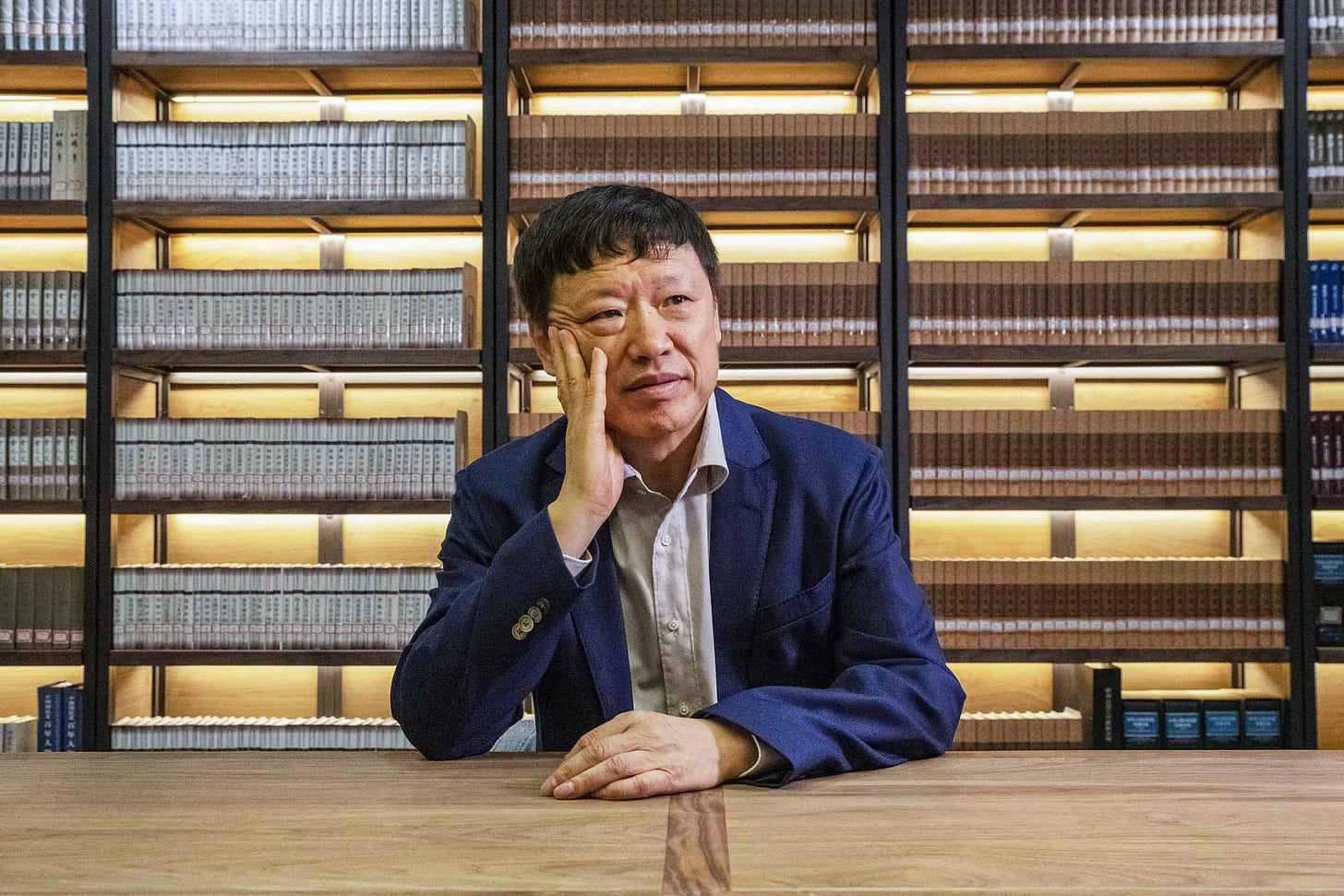Hu Xijin: Silence is not gold
Former Editor of Global Times doubles down on calling for tolerance in China via his influential voice on social media.
Hu Xijin is the former editor-in-chief of the Global Times, a Chinese newspaper under the People’s Daily, the official newspaper of the Central Committee of the Communist Party of China. He recently called for “tolerance and freedom within the constitutional order” in a WeChat blog on 10 October, then echoed the point on 14 October on Weibo, China’s equivalent of X/Twitter.
Following yesterday’s translation in The East is Read of Hu’s WeChat blogpost, here is the complete translation of his post on Weibo, where he has 24.98 million followers.
Many people are growing far more cautious about speaking on social media or have stopped posting altogether. Celebrities’ feeds that once chatted about daily life are now mostly for official announcements. People in the state system tread even more carefully: many no longer post to their WeChat Moments [similar to Facebook or Instagram posts visible to friends]; if they do, it’s just a repost of a state media report. University teachers have become a “sensitive group,” most choosing to say as little as possible online. The same goes for executives and middle managers in private firms. In short, personalised content of many groups has been scrubbed as clean as fields after the autumn harvest.
It’s a loss for the public information space in the internet age and it leaves public opinion incomplete. This collective silence doesn’t belong in an open society.
Why is this happening? At root, society’s tolerance has narrowed. Speaking in your own voice now carries growing personal risk and can even put your organisation in the firing line. So people, either proactively or after a gentle “reminder” from their workplace, have sharply reduced their willingness to share views online, or stopped entirely. What remains is scrolling, with the occasional like. Look closer and two forces are at work. First, the overall online climate has turned harsher. The hunt for “flaws” is frequent and meticulous. Once a target is found, attention converges fast; the digging and attempts to “connect the dots” seem endless, and all too often things are blown up into sweeping indictments. That kind of risk is hard for anyone to bear. For public employees within the state system or mid-level managers at a private company, it can easily implicate the organisation behind them.
These days, the bar for being labeled a “public employee” has dropped sharply. Online, anyone working in a government agency or a public institution, and many in state-owned enterprises, gets swept into that category. The label brings extra sensitivity and a double standard for the same misstep.
University lecturers and mid- to senior-level managers in private firms are also singled out as having “special” status, which sharply increases the chances that something they say or do will blow up. To guard against these risks, members of these “sensitive groups” have joined the low-key camp. Their motto has become: say less, or say nothing—just in case.
Secondly, on the internet, a few lines are routinely over-interpreted, or a photo’s meaning is stretched, and the backlash quickly shifts to the person’s organisation. In principle, organisations should hold their nerve and avoid disproportionate punishment of staff under fire. In practice, most are highly risk-averse and won’t court controversy. In the state sector, there’s the added fear of displeasing supervisory authorities and inviting a rebuke from above. In the private sector, protection is thinner still: if sacking someone helps to douse the storm, it happens fast.
My view is that our society should be as relaxed as possible under the constitutional order led by the Communist Party of China, and that this requires effort both from society and along the governance chain. While the internet should exercise robust watchdog power, there ought to be a shared commitment to respecting individual rights. Personalised information should not be over-interpreted, and cyberviolence aimed at imposing “social death” on an individual should not be tolerated. Some people, in anger or for clicks, want to drive a target to ruin; but the broader online community should uphold a norm of respecting rights and giving people room to correct mistakes. The internet shouldn’t be so punitive: don’t destroy someone just because you’ve found a misstep; don’t add “one more count” simply because of their job title. It shouldn’t be like that.
Organisations, for their part, should guide and stand firm for a more tolerant, more relaxed climate under the constitutional order. They should accept public scrutiny and fix genuine problems decisively, while also respecting employees’ personal rights that are unrelated to their official duties. Hold staff to high standards on the job, yes; but off duty, protect their space to join public discussion within the broad bounds of positivity, public order, and common decency. The overall benefits to society will definitely outweigh the risks. Even when such personal posts, within that broad framework, attract attention or criticism, organisations should respond with tolerance: don’t treat criticism itself or a flare-up of public opinion as proof of wrongdoing, and don’t scapegoat the colleague who “attracted” the criticism simply because the organisation was attacked.
Of course, if both the organisation and the individual involved have serious problems and are rightly called out online, that’s a different matter.
Either way, it’s definitely not a good sign that so many verified groups now opt for silence online. Widening social tolerance under the constitutional order is a practical lever worth pursuing. Society should be diverse and vibrant; social media should be a platform for everyone to share information. If some groups withdraw or go deeply passive, leaving only others to speak, the outcome won’t be healthy, and new problems will follow.





Excellent note, Yuxuan. Needed saying. Thanks.